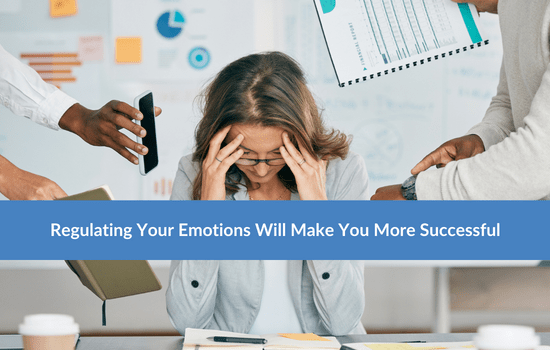Our emotions are vital in sending us relevant messages and most often drive our behaviour. We can increase our emotional intelligence and success if we take the time to read, feel, and manage those messages.

How Well Do You Know, Feel, and Manage Your Emotions?
How often do you stop to feel or manage your emotions during your busy day? Many would answer that question with "rarely." For numerous reasons, we go through our daily routines without being fully aware of our emotions; they come and go, not always as we wish.
Your Emotions Send Vital Messages
Checking your emotions and asking yourself why you feel the way you do or react to a situation is essential to healthy self-management. Circumstances can and do hijack our emotions when we fail to recognize and manage them. Sometimes, specific people or conditions seize our feelings for various reasons. Still, often it is related to something from our past, such as an adverse incident that creates uncomfortable feelings, cultivating unwanted emotional responses.
Your Emotions Are Not You
As you begin to explore your emotions, you deepen your self-awareness. Only then do you start to understand that your feelings are not yours! Your emotions are what you feel, not what you are. As you become more mindful of your emotions, you realize they are experiential, which you feel, which is quite different from who you are - which is existential.
For example, you can say, “I feel frustrated,” or you can say, “I am frustrated.” If you say, “I am frustrated,” there is little you can do about it. Instead, if you say, “I feel frustrated,” it is an experience you’re feeling, and you can do something about it. You can control how you’re feeling by calming or ignoring the emotion for the time being until you’re better prepared to manage it.
How Intimate Are You With Your Emotions?
If you want to master managing your emotions, you must become intimate with them. Remember, the more you pay attention to your feelings and question them, the more self-aware you’ll become. Once you understand why you do what you do, you will increase your emotional awareness, strengthen your emotional intelligence, and self-manage better in future situations.
Remember, to be the best version of yourself, you always want to manage your emotions instead of them controlling you. Check out my book, The Power of Emotion, to find success. Marshall Connects offers Emotional Intelligence Assessments and Coaching to enhance skill development in all areas, including self-management techniques like successfully regulating your emotions to improve your life and overall productivity.
This article was originally published on October 6, 2018, and has been updated (June 2023).
More Motivational Reads Here »
Are you Emotionally Intelligent?
Sign up for Linda’s monthly tips to build your Emotional Intelligence and reduce Emotional Hijacking!

















